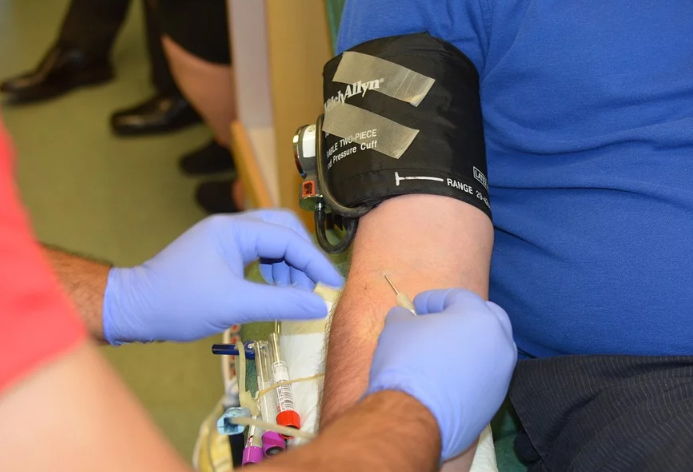
Urgent Need for Blood in Greater Green Bay Area
More than 700 Units of Blood Lost in the Last Week: “Pop Up Donor Centers” Being Created
Nationally, blood centers have seen more than 4,000 blood drives cancelled, resulting in some 130,000 fewer blood donations due to coronavirus concerns. The Community Blood Center is seeing this impact locally, reporting that more than 30 blood drives have been cancelled in the past week due to COVID-19. That number equates to more than 700 units that The Community Blood Center will no longer have to distribute to partnering hospitals. In a typical week, The Community Blood Center needs 1,000 blood donors to meet the transfusion requirements of our hospital partners in the community.
The need for blood does not go away because of COVID-19 concerns. Patients rely on transfusions as part of regular medical care. Nationally, 35,000 blood donations are needed every single day. Patients navigating cancer and undergoing necessary medical treatments often rely on blood products.
To help ensure an adequate blood supply is available, and to ensure access to blood donation opportunities, The Community Blood Center is seeking to create “pop up donor centers” in various communities throughout Northeast Wisconsin, including Appleton, Neenah, Waupaca and Oshkosh. As these locations are confirmed, donors can schedule appointments on The Community Blood Center website. Businesses and community organizations who can offer support at this time are encouraged to reach out to The Community Blood Center to learn more about being a site for a “pop up donor center.”
“The next three to four weeks are concerning,” shared John Hagins, Chief Executive Officer and President, The Community Blood Center. “The inventory is decreasing and blood drives continue to cancel as employers mandate remote work and limit external guests. Blood drives and donation centers are not considered public gatherings and can be managed with donation appointments. We need community members to donate to ensure we can offset these cancellations.”
Shortages across the country are leading blood centers to rally together to support the urgent call for donors. In a press release issued on March 12, 2020, AABB, America’s Blood Centers, American Red Cross and Armed Services Blood Program jointly called for action and highlighted the necessity of blood donation. As shared in that release:
“We need people to start turning out in force to give blood,” urged Peter Marks, M.D., Ph.D., director of the U.S. Food and Drug Administration’s (FDA) Center for Biologics Evaluation and Research.
Blood is perishable. Red blood cells have a shelf life of 42 days and platelets only five days. It is crucial blood continues to be collected to ensure a reliable supply for patients who count on transfusions for treatments. There is no substitute. Blood transfused to a patient must come from a volunteer donor.
Safety is the top priority for The Community Blood Center. A self-deferral has been added to the pre-screening process asking donors who have traveled to an area with an outbreak, who are suspected or confirmed of having COVID-19, or live with someone who is suspected or confirmed in having COVID-19 to refrain from donating. The routine screening process already in place accounts for understanding travel history and includes a wellness check.
“It’s most important for our communities to stay safe. We respect the measures that are being taken, and are acting on them for our staff as well,” Hagins adds. “However, we still need to collect blood. Patients still need it. We need healthy and eligible donors to make and keep appointments.”
Internally, hand wash safety and cough etiquette has been reviewed with all employees and staff are encouraged to stay home if ill. Only employees who are essential to the blood collection, testing and distribution process are to work onsite. All other employees will conduct work remotely. Additional sanitizing steps have been added to the already rigorous cleaning process.
COVID-19 poses no known infectious risk to patients receiving blood transfusions. There are no reported cases of transfusion transmission of this virus.
Every two seconds, someone in the U.S. needs blood. All blood types and platelet donors are needed. First-time donors and regular donors are all encouraged to schedule an appointment by calling (800) 280-4102 or by visiting www.communityblood.org.
[Information Source for this article: The Community Blood Center]

